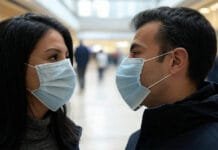– Dr.Rohini –
Conjunctivitis or pink eye is an inflammation or infection of the outer membrane of the eyeball and the inner eyelid can be infectious or allergic. It spreads if one comes in contact with a person who has conjunctivitis. The condition is caused due to Virus or Bacteria.
Viral infections are at its peak during the monsoon season because of the sudden increase in moisture levels. During this time eyes are the worst affected. Viral conjunctivitis is mostly caused by adenoviruses or enteroviruses. Patients usually suffer from pain in the eye, watering, redness, sticking of eyelashes, and swollen eyelids. Depending on the severity, sometimes the cornea also gets affected causing blurring of vision, glare, and increased sensitivity to light. Some of these patients have fever, rhinitis, and Pharyngitis known as the common cold.
COVID 19 AND CONJUNCTIVITIS:
There are patients who have COVID 19 and Conjunctivitis. Sometimes acute conjunctivitis can be the only presenting sign and symptom in COVID 19.
If you see someone with a pink eye, don’t panic. It doesn’t mean that a person is infected with the coronavirus. Based on the data so far, studies show that 1 – 3 % of people with COVID 19 will get conjunctivitis. So if you have conjunctivitis from COVID 19, you may infect others if you touch your eyes and then touch people or surfaces without washing or disinfecting your hands. So it is very important to avoid touching your face, especially the mucous membrane in your mouth, nose, and eyes.
Acute allergic conjunctivitis is a seasonal allergy that turns up during monsoons. So if one has redness, itchy watery eyes, difficulty in blinking, dry eyes for more than two days, then it is better to visit an ophthalmologist as soon as possible, it might be allergic conjunctivitis.
These symptoms can be relieved on using ocular antihistamines which block the actions of histamine, the chemical that causes these symptoms of allergy.
Lubricants help in relieving dry eyes, If these medicines fail , then steroid eye drops once prescribed to relieve symptoms of conjunctivitis but under supervision.
SOME DO’S & DON’T’S :
Here are few tips to protect yourself from conjunctivitis this monsoon.
1. Maintaining personal hygiene is the most important precaution one has to take.
2. Wash your hands especially before eating after using the restroom, sneezing, coughing, or blowing your nose.
3. Avoid touching your face particularly your eyes, nose, and mouth.
4. Avoid close contact with sick people
5. Stay home when you are sick
6. If you wear contact lenses to avoid using them during monsoon, as the chances of infection is higher during monsoon.
7. Do not share cosmetics.
So it is important to remember that although there is a lot of concern about conjunctivitis, precautionary measures can significantly reduce your risk of getting infected. So wash your hands frequently, follow good contact lens hygiene and avoid touching or rubbing your eyes.
_____________
About the Author
Dr.Rohini
Author & Consultant
Dr.Rohini –MBBS, MS. Senior cataract, Lasik & ICL Surgeon, Maxivision Group of Eye Hospitals, Hyderabad
Disclaimer : The views expressed by the author in this feature are entirely her / his own and do not necessarily reflect the views of INVC NEWS.


 About the Author
About the Author













